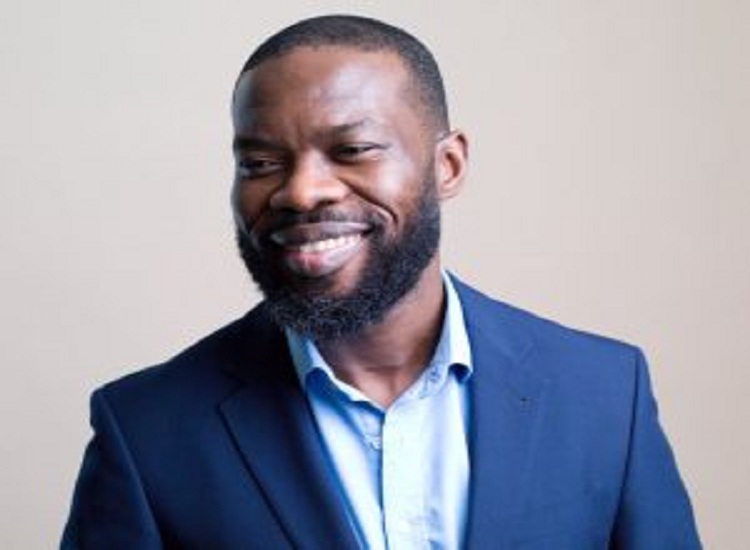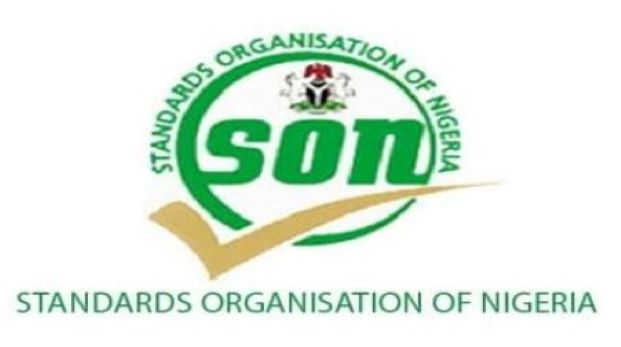General News
Entrepreneurship Skills for Growth-Orientated Start-Ups

By Michael Oludare
Fueled by the mass adoption of digital technologies, the globalization of markets, and demographic shifts, the world of work is rapidly changing.

The days of learning as one distinct phase of life are long over; today, talent must commit to continuously developing new capabilities and knowledge. In particular, entrepreneurs must continuously up skill to ensure the success of startup ventures.
A Harvard University study found that as much as eighty-five per cent of job success comes from having well‐developed people-centered capabilities – what we have often called “soft skills.” Given how critical they are today, a better term is “power skills” – as technology continues to automate more routine parts of work, a higher premium will be placed on talent who can effectively communicate, collaborate, and lead teams. In view of the critical role that small and medium-scale enterprises (SMEs) play in any nation’s economic development, it becomes imperative that startups leverage such power skills to optimize business performance.
Technical skills, involving the use of knowledge and tools to complete high-level tasks, will always be an essential component of work. But the ways we work are also shifting rapidly, as technologies like artificial intelligence automate routine parts of work and practices like citizen development demystify practices like coding which were previously only accessible to those with highly technical skill sets.
In this new paradigm, it’s simply table stakes to master the technical side of work; even more crucial is cultivating enduring human-based capabilities and creativity. Such power skills profoundly shape how an individual interacts with others and achieves their goals. Think of capabilities like leadership and strategic communication that can’t be easily automated by machines. After all, no matter how advanced computers become, they still lack the ability to rally a team around an inspirational shared vision in the face of challenges. Although the mastery of technical and people-based skills alikeare necessary to successfully perform and advance in the marketplace, the acquisition of hard skills is too often over-emphasized at the expense of other skills that may be more challenging to quantify and measure, like resilient leadership.
In a bid to help startups navigate the complexities of entrepreneurship in Africa, The Project Management Institute (PMI) collaborated with The Tony Elumelu Foundation to createa six-part series on “Idea to Reality: Project Management for SMEs”. The fifth installment of the masterclass session titled “Idea to Reality: Power Skills” explored a range of power skillsthat helped organizational leaders and teams stay focused, engage, drive efficiency, and produce business value.
George Asamani, business development lead, Africa at the Project Management Institute (PMI) was a facilitator for this session. He shared from his wealth of knowledge as an industry expert offering project solutions that develop skills, drive efficiency and deliver impact to institutions across sectors on the continent.
He reiterated the message that successful project management requires more than the mastery of technical skills; it also requires a special set of skills to align the deployment of all resources toward the desired goal, achieving set objectives.
To buttress his point on the often overlooked yet strategic impact of power skills, he examined relevant power skills using Porter’s value chain – a framework that breaks an organization’s activities down into strategically relevant pieces. The primary activities of Michael Porter’s value chain are inbound logistics, operations, outbound logistics, marketing and sales, and service. The goal of the five sets of activities is to create value that exceeds the cost of conducting that activity, therefore generating a higher profit. He further stressed that incorporating soft skills such as negotiation, business ethics, strategic thinking, adaptability, resourcefulness, creativity, persuasion, tenacity, emotional intelligence and logical thinking into activities on the value chain provides a source of differentiation and competitive advantage for startups.
In a data-driven world, power skills have been somewhat de-emphasized. This is a grave mistake when it comes to project management, where a combination of skills is necessary. Now more than ever, due to unprecedented workplace evolution and complexity, the future of the workplace requires agile, change-ready teams—led by strong power skills including collaboration, empathy, creativity and innovation. Power skills allow entrepreneurs to apply their technical understanding within the context of a particular situation.
The Project Management Institute has developed the Talent Triangle, a model for the ideal project manager skill set that includes a mixture of the capabilities needed to succeed. The talent triangle focuses on the areas of leadership, technical project management, and strategic and business management. Each part of the triangle is of equal importance. “When you consider the challenges of the unpredictable nature of entrepreneurship and the technical skills versus power skills debate, you realize that technical skills are not enough neither are power skills. You need both to thrive on your entrepreneurial journey” said George Asamani, he further revealed that “people are a startup’s most valuable commodity. You get more value in your business when you diversify your team by adding complementary power skills.”
Although many of these power skills derive from innate ability, the organizationculture plays a considerable role in developing it. Startups should develop employee soft skills with the requisite training as this will help increase overall business performance – and ultimately deliver a higher return on investment.
General News
FG Halts Controversial FRC Dues amid Industry Outcry

Federal government has temporarily suspended the controversial annual dues imposed on public interest enterprises by the Financial Reporting Council (FRC) after fierce opposition from businesses.

Jumoke Oduwole, minister, Industry, Trade, and Investment, announced the decision during a Ministerial Consultative Meeting in Abuja on Wednesday.
The move follows mounting pressure from private sector groups, including the Nigeria Employers’ Consultative Association (NECA) and the Manufacturers Association of Nigeria (MAN), who slammed the Financial Reporting Council (Amendment) Act 2023 for burdening companies with excessive fees.
The Act mandates cumulative annual charges for non-listed entities and imposes a harsh 10% monthly penalty on unpaid dues, compounding until full payment, a provision that sparked widespread backlash.
At the meeting, major industry players like NECA, MAN, the Nigerian Association of Chambers of Commerce (NACCIMA), oil producers, and telecom operators warned that the fees would cripple businesses already struggling in a tough economy.
Oduwole clarified the suspension, stating, “The government has decided to direct the Financial Reporting Council to pause in the implementation of the new annual dues. You know that I am a lawyer, and a suspension request by the organised private sector would be in contravention of legislation duly passed by the National Assembly. A pause is an administrative process simply to review, in line with what we discussed today.”
She assured stakeholders that the halt would last no longer than 60 days, with a technical working group—including FRC officials and private sector representatives—set up to reassess the policy.
“We are a listening administration. The private sector has requested a range from three months to an indefinite suspension. We are not going to do that. So, at the most, 60 days is in my estimate. We are going to set up a technical working group comprised of the FRC and the organised private sector who have formally written in, and this will be reviewed,” Oduwole emphasized.
General News
SON Pledges to Standardize Made-in-Aba Products

The Standards Organisation of Nigeria (SON) says it is intensifying efforts to standardise locally manufactured products, including Made-in-Aba brands, in order to enhance both local and international acceptance.

Aharanwa Chuks, Director of Region (South East), SON, communicated this in an interview with the News Agency of Nigeria (NAN) on Wednesday in Abuja.
Chuks said through the Mandatory Conformity Assessment Programme (MANCAP), SON ensured that all Nigerian-made products conformed to the relevant Nigerian Industrial Standards (NIS).
According to him, MANCAP involves direct engagement with manufacturers to certify that their products meet established quality benchmarks.
“This process includes inspecting production facilities, sampling products and testing them against NIS requirements.
“Successful compliance results in the issuance of the MANCAP certification, signifying adherence to quality standards.
“In Aba, SON has been proactive in educating manufacturers about standardization.’’
The director said SON also conducted stakeholder interactions; gathering manufacturers from various sectors to provide guidance on producing goods that met both local and international standards.
“For instance, leather manufacturers in Aba have been sensitized on standardization practices to enhance the global competitiveness of their products.
“Manufacturers are encouraged to collaborate with SON to obtain MANCAP certification, ensuring their products are not only marketable within Nigeria but also competitive internationally.
“This initiative aims to boost consumer confidence and promote the acceptance of Made-in-Aba products globally,” Chuks said.
General News
EFCC Arrests 133 @ Ponzi Scheme Training Academy

Operatives of the Economic and Financial Crimes Commission (EFCC), has busted a Ponzi Scheme Academy and arrested 133 suspects in Abuja.

They were arrested at the Compensation Layout in Gwagwalada area of the Federal Capital Territory, FCT, Abuja, following actionable intelligence on the existence of the Academy.
The Academy, named Q University (a.k.a Q-Net) is in the business of recruiting gullible young Nigerians who are trained to recruit more gullible citizens into the scheme with the promise of getting unrealistic profit returns.
The suspects are enrolled into a training codenamed: “Special Training for New Generation Billionaire” and brainwashed to believe that they would graduate into the league of billionaires.
They got into the training by obtaining a form the promoters called “Independent Representative Application Form” with promotional slogans such as: “I’m a Champion” “I’m Unstoppable”, “I’m Infinity”, among others.
The EFCC carried out the operation in collaboration with officers and men of 176 Guards Battalion, Nigerian Army.
Items recovered from the suspects include phones, computers and other electronic gadgets.
They will be charged to court as soon as investigations are concluded.

 E-Business3 days ago
E-Business3 days agoFG Plans to Link Social Register to NIN for Humanitarian Crisis

 Telecom3 days ago
Telecom3 days agoKeystone Bank Seeks to Join Suit in Tussle over 9Mobile Shares Ownership

 Broadcasting3 days ago
Broadcasting3 days agoWe’re Confident in the Super Eagles – Karl Toriola

 E-Business3 days ago
E-Business3 days agoFive WhatsApp Business Features Every Small Business Should Be Using

 E-Financial3 days ago
E-Financial3 days agoFG to Harmonise Fiscal Data Across MDAs

 News3 days ago
News3 days agoSenate Probes Federal Character Violations by NDIC, Others

 News2 days ago
News2 days agoCourt Throws Out Falana’s Fraud Case against Ekeh, Zinox Boss and Others

 E-Financial3 days ago
E-Financial3 days agoZumax Files N4.1Bn Suit against CBN over ‘Fraudulent’ Receivership















